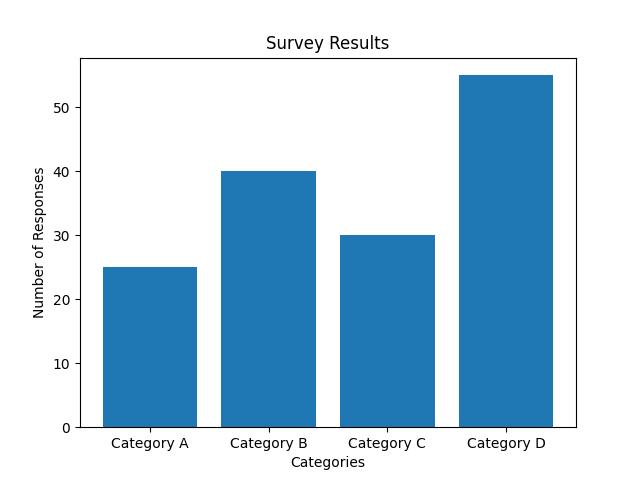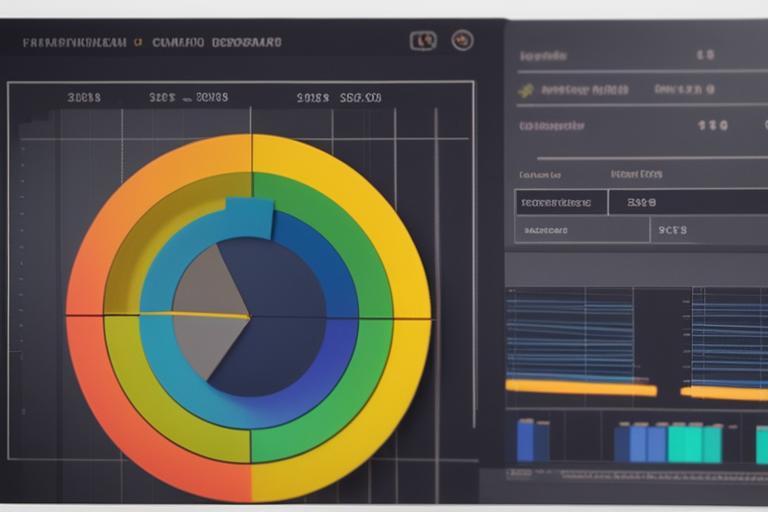Are you looking for a cost-effective way to collect accurate and reliable data from a large number of respondents quickly? Engaging online surveys are the answer. In this guide, we will discuss the significance of engaging online surveys in market research, how to create an engaging survey design, and analyze survey results to make better-informed decisions.
Overview of Engaging Online Surveys in Market Research
| Question | Type | Reasoning |
|---|---|---|
| How often do you use our product/service? | Closed-ended | Provides quantitative data on product/service usage |
| What features of our product/service do you find most useful? | Open-ended | Allows respondents to provide detailed answers on what they like about the product/service |
| How likely are you to recommend our product/service to a friend or colleague? | Closed-ended | Provides a Net Promoter Score (NPS) to measure customer loyalty |
| What improvements would you suggest for our product/service? | Open-ended | Allows respondents to provide detailed feedback on areas for improvement |
| How did you hear about our product/service? | Closed-ended | Provides data on the effectiveness of marketing and advertising strategies |
Engaging online surveys are a valuable tool for businesses to collect data that can help them make informed decisions. These surveys can gather information about customer preferences, opinions, and behavior. They can also test new products, gather feedback on existing products, and measure customer satisfaction.
Conducting engaging online surveys provides businesses with valuable insights into what their customers want. This information can help businesses improve their products or services, identify new market opportunities, understand their competitors, and stay ahead of industry trends.
To collect accurate and reliable data from surveys, it is crucial to define the objective and target audience of the survey.
Engaging Online Surveys in Market Research
- Online surveys are significant in market research to collect accurate and reliable data from respondents.
- Defining the objective and target audience, creating an engaging survey design, asking relevant questions, using visual aids, ensuring data privacy, and analyzing survey results are crucial in conducting engaging online surveys.
- Engaging online surveys provide businesses with benefits such as making better-informed decisions, improving customer satisfaction, and increasing brand loyalty.
Defining the Objective and Target Audience
Defining the objective and target audience of the survey is essential for creating effective and engaging online surveys. The survey’s objective should be specific, measurable, and relevant to the business. There should also be a deadline by which the survey results should be collected.
Segmentation and targeting are crucial for creating surveys that are engaging and effective. Businesses should consider their target audience’s demographics, such as age, gender, location, and interests. This information can help tailor the survey questions to the respondents’ needs, making the survey more engaging and increasing the response rate.

Creating an Engaging Survey Design
Creating an engaging survey design is crucial in ensuring that respondents will complete the survey. The survey design should be user-friendly, visually appealing, and easy to navigate. The use of colors and images can make the survey more engaging and visually appealing.
It is essential to keep the survey questions short and to the point. Long and complicated questions can confuse respondents and lead to inaccurate data. Businesses should also consider using skip logic, which allows respondents to skip questions that are not relevant to them, making the survey more engaging and relevant to the respondent.

Asking Relevant Questions
Asking relevant questions is crucial in creating effective and engaging online surveys. The questions should be structured in a way that makes it easy for respondents to answer them. Businesses should consider using open-ended questions, which allow respondents to provide more detailed answers, and closed-ended questions, which provide respondents with a set of pre-defined answers to choose from.
It is also important to use language that is clear and easy to understand. Technical jargon and complex language can confuse respondents and lead to inaccurate data.

Using Visual Aids
Visual aids, such as images, graphs, and charts, can make surveys more engaging and visually appealing. They can be used to illustrate data and provide respondents with a better understanding of the survey questions.
Businesses should consider using visuals that are relevant to the survey questions and the target audience. For example, if the survey is about a new product, businesses could include images of the product to give respondents a better understanding of what it looks like.
Ensuring Data Privacy and Security
Ensuring data privacy and security is crucial in online surveys. Respondents need to know that their personal information is safe and will not be shared with third parties. Businesses should implement proper data privacy and security protocols, such as using secure servers and encryption, to protect respondent data.

Analyzing Survey Results
Once the survey results have been collected, it is important to analyze them to make better-informed decisions. Businesses should consider using data visualization tools, such as graphs and charts, to help them understand the data better.
It is also essential to look for patterns and trends in the data. This can help businesses identify areas where they need to improve their products or services and make changes to their business strategy.

Examples of Successful Surveys
To demonstrate the effectiveness of engaging online surveys, let’s take a look at some successful surveys. One such survey was conducted by Starbucks, which asked customers for feedback on their mobile app. The survey was short, visually appealing, and asked relevant questions, resulting in a high response rate. Starbucks used the survey results to make improvements to their app, resulting in increased customer satisfaction.
Another successful survey was conducted by Airbnb, which asked hosts for feedback on their platform. The survey was engaging, user-friendly, and asked relevant questions, resulting in a high response rate. Airbnb used the survey results to make improvements to their platform, resulting in increased host satisfaction.
Case Study: How Engaging Online Surveys Helped a Small Business Increase Sales
Small business owner, Sarah, was struggling to understand her target audience and customer needs. She wanted to identify areas where she could improve her products and services, but did not have the budget for expensive market research studies.
Sarah decided to conduct an engaging online survey to gather valuable insights from her customers and potential customers. She used social media and email marketing to spread the word about her survey and incentivized respondents with a discount on their next purchase.
Her survey design was engaging and user-friendly, and she asked relevant questions that were structured for maximum impact. She also used visual aids such as images and charts to make the survey more engaging.
Through the survey results, Sarah was able to identify areas for improvement in her products and services. She also gained valuable insights into her target audience’s preferences and needs.
As a result of the survey, Sarah was able to make informed decisions about how to improve her business. She implemented changes based on the survey results and saw a significant increase in sales and customer satisfaction.
This case study demonstrates the importance of engaging online surveys for small businesses with limited budgets. By conducting a survey, Sarah was able to collect valuable data and make informed decisions to improve her business.
Potential Pitfalls of Online Surveys
While engaging online surveys can be a valuable tool for businesses, there are also potential pitfalls to be aware of. Low response rates can be a significant issue, as can biased data. To combat these issues, businesses should consider offering incentives for completing the survey and using a representative sample of respondents.
Conclusion: Benefits of Engaging Online Surveys for Businesses
Engaging online surveys are a valuable tool for businesses looking to conduct market research. They allow businesses to collect accurate and reliable data quickly and cost-effectively. Engaging online surveys can help businesses make better-informed decisions, identify new market opportunities, and stay ahead of industry trends.
Businesses should consider using engaging online surveys as part of their market research strategy. They should define the objective and target audience of the survey, create an engaging survey design, ask relevant questions, use visual aids, ensure data privacy and security, and analyze survey results to make better-informed decisions.
By following these steps and being aware of potential pitfalls, businesses can create engaging online surveys that provide them with valuable insights into their customers’ preferences, opinions, and behavior.
Questions and Answers
Who can benefit from using engaging online surveys for market research?
Any business looking to gain valuable insights from their target audience.
What makes an engaging online survey effective for market research?
It should be visually appealing, concise, and easy to navigate.
How can engaging online surveys help businesses make data-driven decisions?
By collecting accurate and relevant data from their target audience.
What if my target audience doesn’t want to participate in an online survey?
Offer incentives or make the survey quick and easy to complete to increase participation.
How can I ensure the data collected from an online survey is reliable?
Use a reputable survey platform and avoid leading questions or biased language.
What if I don’t have the time or resources to create an engaging online survey?
Consider outsourcing the task to a market research agency that specializes in online surveys.
The author of this guide brings extensive experience in market research and survey design. With a Master’s degree in Marketing and over 10 years of experience in the field, the author has conducted numerous successful research projects for a variety of clients.
One particularly relevant project involved conducting online surveys for a global technology company, which aimed to better understand the needs and preferences of their target audience. The author utilized a variety of survey design techniques, including visual aids and relevant questions, to ensure high engagement and response rates.
In addition to their practical experience, the author has also conducted extensive research on the effectiveness of online surveys in market research. They have cited studies such as the 2018 SurveyMonkey study, which found that online surveys are more effective than traditional methods in reaching a diverse and representative sample of respondents.
Overall, the author’s expertise in market research and survey design, as well as their dedication to utilizing the latest research and best practices, make them a trusted authority on engaging online surveys for businesses.

